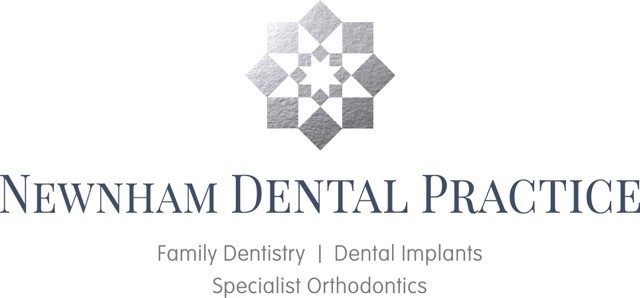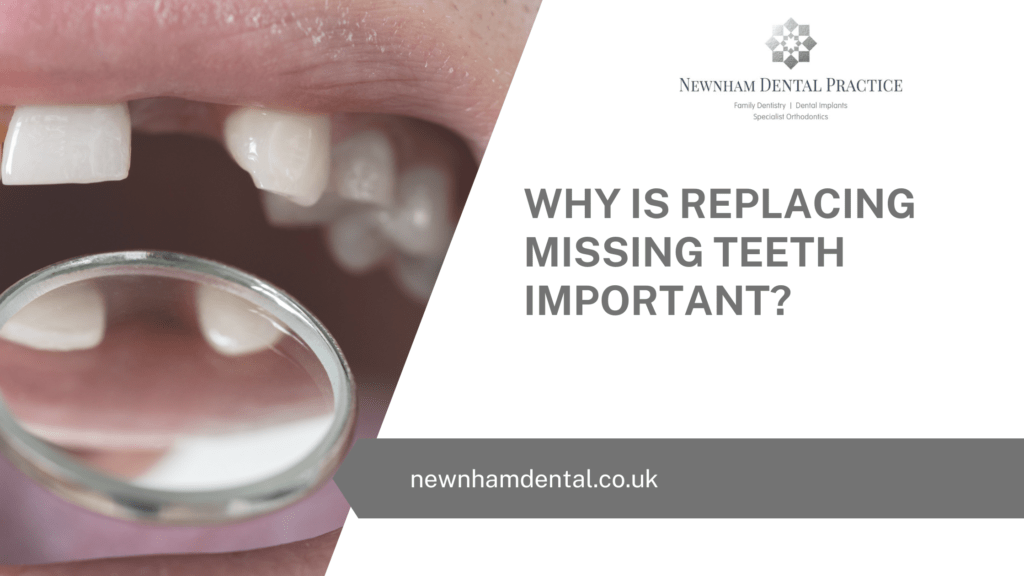Tooth loss is a growing concern across the world. According to the Oral Health Foundation, over 74% of adults in the UK have had at least one tooth extracted. Unfortunately, even a single missing tooth can cause significant aesthetic and functional complications that must be addressed immediately. If you are among those people who think that having one or more missing teeth will not have any effect on their oral or physical, this blog is for you. So, continue reading to learn why it is essential to have one’s missing teeth replaced as soon as possible.
Why Is It Important To Replace Missing Teeth?
There are several reasons why one should have their missing teeth replaced without delay. These are
- Further Tooth Loss – missing teeth initiate a chain of events that can cause further tooth loss and other dental problems.
- Aesthetics – missing teeth, especially the front ones, can significantly affect one’s smile and personality if lost.
- Effect or Physical Health – missing teeth make it harder to chew and digest food. Therefore, missing teeth can also affect one’s physical health and well-being.
- Speech Issues – missing teeth can also cause speech problems.
What Is The Effect Of Missing Teeth?
Many people think that missing teeth will only affect their appearance and smile. However, this is not correct. The fact is that missing teeth can cause a variety of complications. For example, missing teeth can cause problems in eating and speaking. Similarly, they can also affect one’s ability to chew and digest food, causing malnutrition and indigestion. Finally, missing teeth can cause the unwanted movement of the neighbouring teeth, causing spacing between the teeth and increasing the risk of tooth loss.
Can You Get Dental Implants If Your Gums Are Infected?
Dental implants anchor themselves directly within the jawbone to support an artificial tooth. Therefore, a healthy and dense bone is essential for ensuring the long-term survival of dental implants. So, if an underlying gum disease causes bone tissue destruction, any implant placed in such a bone will not be able to anchor itself properly, leading to implant failure. Hence, dental implants are not placed when the underlying jaw bone is infected due to periodontal disease.
Can You Get Dental Implants If You Don’t Have Any Teeth?
Dental implants have become the most preferred tooth replacement option worldwide. The best thing about dental implants is that whether you have lost a single, multiple, or all the teeth in your mouth, you can replace them with dental implants. So, even if you don’t have any teeth, your dentist can replace them with a complete fixed bridge supported by 4 implants in each jaw. Such a prosthesis is called an all-on-4 implant-supported prosthesis.
Which Is Better, An Implant Or A Bridge If You Have Poor Gums?
It is not advisable to replace missing teeth when the underlying jawbone is affected due to gum disease. This is because, in the case of gums, the teeth supporting the bridge may become mobile due to extensive bone loss. Hence, they will not be able to support the bridge for a long time. Similarly, an implant placed in a gum disease-affected bone is bound to fail. So, the ideal way is to treat the gum disease first and then proceed with tooth replacement with bridges or implants.
I Have A Missing Tooth. Which Are My Best Options To Replace It?
Several options are available to replace a single missing tooth, such as a partial denture, a dental bridge, or an implant-supported crown. However, when we talk about the best option for single-tooth replacement, it is an implant-supported crown. Why? Dental implants look, feel, and function like natural teeth; they become firmly anchored within the jawbone and robustly support the artificial teeth attached to them.
Should I Get Dentures To Replace My Missing Tooth?
Removable dentures are reliable, time-tested, and cost-effective for replacing missing teeth. However, if you seek the best tooth replacement option, you should consider an implant-supported prosthesis. This is because dental implants are safe, strong, aesthetically pleasing, and can last a lifetime.
Are Dental Implants A Permanent Solution For Tooth Loss?
Dental implants are the most durable tooth replacement option currently available. Studies have shown that with proper care, dental implants can last a lifetime with proper care. So, if you are looking for a long-term solution for your missing teeth, you should consider dental implants.
When Should I Get A Dental Bridge?
A dental bridge should be considered when you have up to three adjacent missing teeth. Furthermore, another requirement for getting a bridge is that the supporting teeth must be healthy and be able to support the bridge firmly.
When Can A Tooth No Longer Be Saved?
Thanks to modern dentistry, dentists can now save even the most grossly damaged teeth. However, there are still cases where a tooth cannot be saved. For example, if multiple attempts to save a tooth through root canal treatment fail, the tooth should be removed and replaced with an implant-supported prosthesis. Alternatively, if a tooth gets fractured such that the fracture line extends into the root, such teeth should be extracted and replaced with a suitable prosthesis. Finally, some teeth that are so grossly damaged that it is not possible to restore them with a restoration or reinforcement with dental crowns, they cannot be saved and should be removed.
Do you have missing teeth that affect your smile and self-confidence? Let the Newnham Dental team restore your smile. So, book an appointment with us today and begin your journey towards a dazzling smile.

